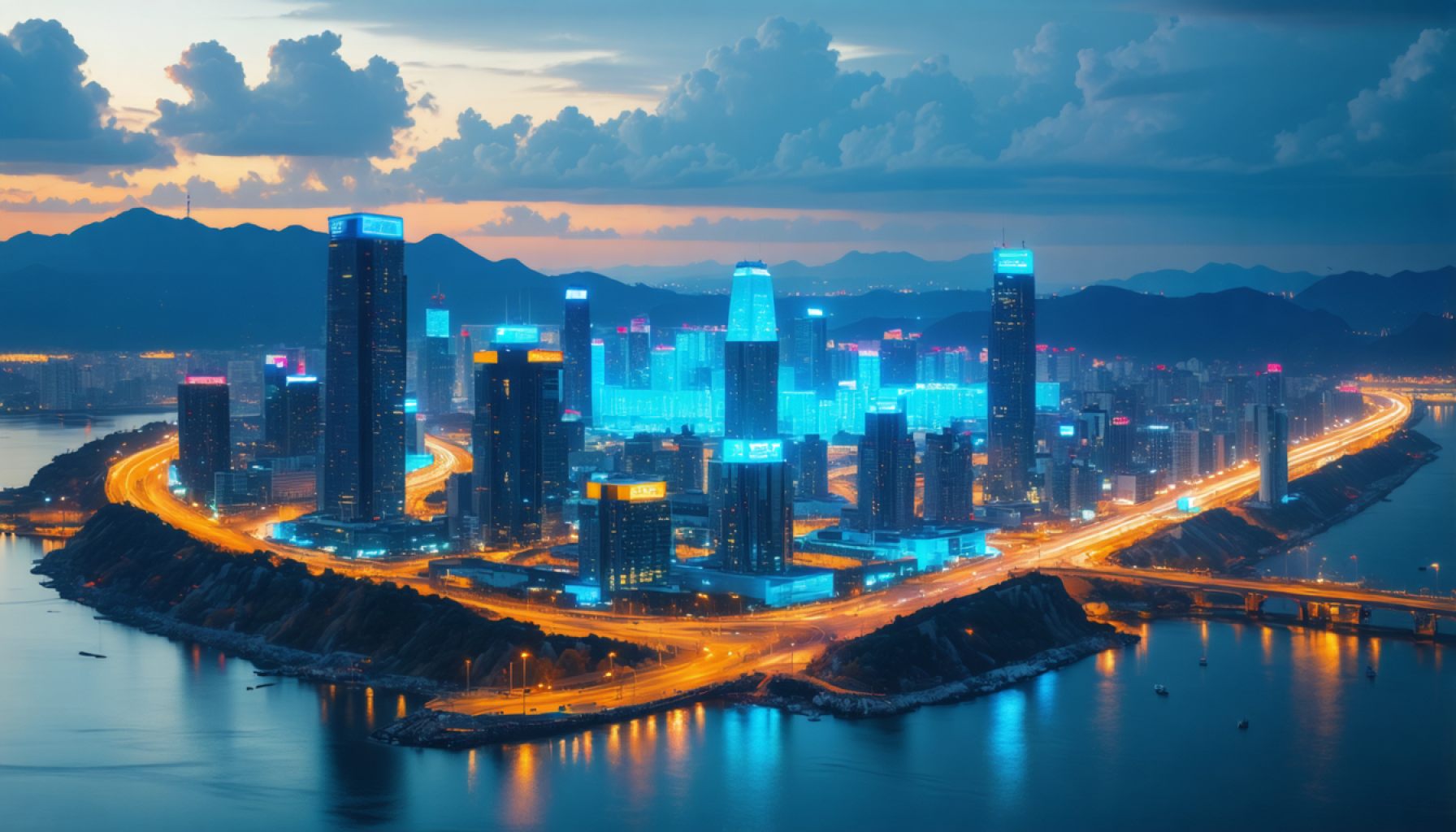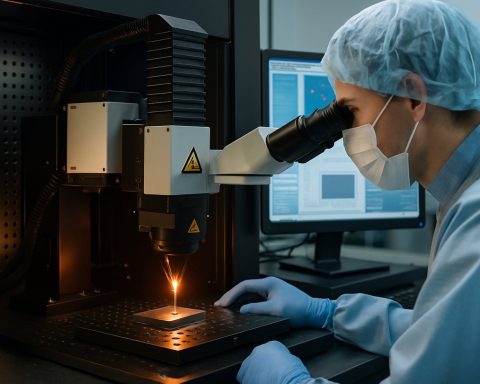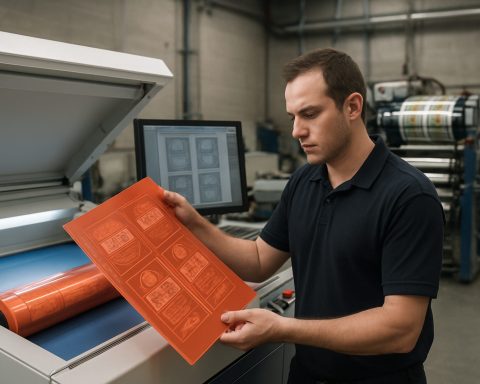- Pohang is emerging as a leader in South Korea’s AI industry, highlighted by its recognition at the ‘2025 National Industry Awards.’
- Transitioning from a steel industry base, Pohang now focuses on AI, biomedicine, and hydrogen energy.
- The ‘Digital Convergence Industry Department,’ launched in July 2023, plays a pivotal role in driving AI initiatives.
- Pohang’s strategies include building AI infrastructure, encouraging investment in AI, and integrating AI across industries.
- Local collaboration with universities, research institutions, and startups strengthens Pohang’s R&D environment.
- Efforts to become a ‘Global AI Leading City’ position Pohang as a competitor for national AI projects, such as the National AI Computing Center.
- Mayor Lee Kang-duk credits collective community and institutional efforts for Pohang’s swift transformation into a tech hub.
- Pohang’s progress serves as an inspiring model for other regions aiming for technology-driven growth.
A metamorphosis is sweeping through Pohang, placing it in the limelight as a trailblazer in South Korea’s burgeoning artificial intelligence sector. Recently crowned as an AI industry leader at the prestigious ‘2025 National Industry Awards,’ Pohang demonstrates how a city can reinvent itself by embracing cutting-edge technology and fostering a collaborative environment.
Against the backdrop of a fiercely competitive landscape for local government-led innovation, Pohang stood out at the awards, supported by forerunning institutions like the Ministry of Trade, Industry, and Energy and the Small and Medium Business Venture Department. Historically anchored in the steel industry, the city has pivoted toward emerging fields such as AI, biomedicine, and hydrogen energy. This evolution is underpinned by strategic initiatives aiming to establish a robust AI infrastructure, nurture AI finance ecosystems, and transform industries by integrating AI solutions.
Since its launch in July 2023, Pohang’s ‘Digital Convergence Industry Department’ has been the catalyst behind this transformation. Under the forward-thinking banner of becoming a ‘Global AI Leading City,’ Pohang initiated four core strategies. It built local AI infrastructure, created investment funds to encourage AI innovation, facilitated comprehensive AI integration across industries, and supported local businesses’ international expansion.
However, Pohang’s shift isn’t merely tech-centric. It also involves deep collaboration with local universities, research institutions, and budding AI startups, forming an organic and synergistic R&D environment. Such efforts have swiftly positioned Pohang as a strong competitor in securing major national projects, including the proposed National AI Computing Center, projected to cost up to 2 trillion won.
This drive towards innovation is not only about displaying high-performance computing capabilities or cultivating skilled labor—it also encompasses transformative uses of nuclear power and other sustainable resources. Pohang’s tactics are already reaping rewards; the city’s AI ventures and research initiatives are lauded as exemplary models for rapid technology-driven growth.
Mayor Lee Kang-duk proudly acknowledges the holistic effort behind Pohang’s accomplishments, attributing success to the unified endeavors of citizens, businesses, academic bodies, and research entities. He emphasizes that Pohang’s trajectory serves as a compelling validation of its dedication to bold change and innovation.
Pohang’s ascendancy into a tech behemoth heralds a future brimming with opportunities, setting the stage for the city’s AI industry to not only reshape its own destiny but also contribute substantially to South Korea’s tech landscape in the coming century. This story of transformation serves as a beacon of inspiration for other regions aiming to leverage technology for growth and prosperity.
Pohang: The AI Revolution Transforming South Korea’s Tech Landscape
Introduction
Pohang, traditionally known for its steel production, is rapidly transforming into a technological powerhouse through strategic investments in artificial intelligence (AI). This shift not only positions Pohang at the forefront of South Korea’s tech landscape but also presents a roadmap for similar regional transformations worldwide.
How Pohang is Paving the Way for AI Innovation
Strategies for Success
1. Building AI Infrastructure: Pohang has invested heavily in constructing a robust AI infrastructure, which forms the foundation of its tech-driven economy.
2. Creating Investment Funds: To foster innovation, Pohang has established funds that support AI startups and research projects, encouraging both domestic and international collaborations.
3. Industry Integration: AI technologies are being integrated across various sectors, including biomedicine and hydrogen energy, to enhance efficiency and productivity.
4. International Expansion: Local businesses are being supported in expanding internationally, ensuring Pohang’s innovations reach a global audience.
Collaborative Ecosystem
Pohang’s transformation relies on a collaborative ecosystem that includes local universities, research institutions, and startups. This synergy accelerates R&D efforts, making Pohang a dynamic center for AI development.
Pressing Questions & Answers
What is the significance of Pohang’s recognition at the ‘2025 National Industry Awards’?
Being named an AI industry leader underscores Pohang’s successful pivot from steel to tech, showcasing its strategic vision and execution in fostering an AI-driven economy.
How does Pohang’s AI initiative impact South Korea’s tech landscape?
Pohang’s strategies serve as a model for other regions. Its emphasis on collaboration, infrastructure, and international reach significantly contributes to South Korea’s technological advancements, enhancing its competitive edge globally.
Market Trends and Potential
The AI market in South Korea is expected to grow exponentially, driven by cities like Pohang. According to the Ministry of Trade, Industry, and Energy, the AI sector could see annual growth rates of up to 10% by 2030. This growth is fueled by increased demand in sectors like healthcare, manufacturing, and energy.
Challenges and Limitations
Despite the progress, Pohang faces challenges such as:
– High Initial Costs: Developing AI infrastructure requires substantial financial investment.
– Skill Shortages: Though efforts are underway to cultivate talent, there remains a gap in highly skilled AI professionals.
– Ethical Concerns: As AI technology advances, ethical considerations around data privacy and AI governance become increasingly important.
Recommendations and Quick Tips
– For Local Governments: Focus on creating an ecosystem that promotes collaboration between academia, industry, and government.
– For Businesses: Consider investing in AI technology to improve operational efficiency and drive innovation.
– For Individuals: Acquire skills in AI and data science to stay competitive in the job market.
Conclusion
Pohang’s journey from a steel-centric city to an AI leader illustrates the power of strategic planning and collaboration in driving technological advancement. As other regions look to replicate this success, Pohang stands as a beacon of innovation, pushing the boundaries of what local governments can achieve in the tech sector.
For more insights on technological transformations and AI trends, visit the Google News.








